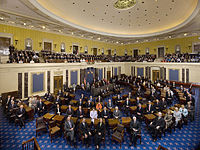There has been some talk that the Obama administration may be adjusting the US's tacit acceptance of Israel's nuclear program, and seeing it as an intractable stumbling block to negotiations with Iran. Israel, not surprisingly, has not recognized any change in its relationship with the United States.
Also of note is the progress that Brazil and Turkey have made mediating a resolution between Iran and the West. Iran has agreed "in principal" to a Brazil-Turkey fuel swap proposal that would involve Iran trading 3.5% enriched uranium for 20% enriched uranium for use in Tehran's medical research reactor.
I can't help but get excited about events like these. They make me think that a mutually beneficial resolution might actually be feasible. However, I am pretty sure that the level of trust needed to conclude any resolution between Iran and the United States is lacking.
I usually do not like drawing comparisons between Iran and Iraq, but I think there is a strong similarity between the weapons inspections that were carried out prior to the Iraq invasion, and the current push for IAEA inspectors in Iran. The US did not trust that Saddam Hussein was not manipulating the inspectors, and Iraq did not have any assurances that the US would keep its promise not to invade if it gave up any weapons that it had. Whether or not Iraq possessed chemical or biological agents was beside the point: once the US made a commitment to invade Iraq based on a condition that it could never verify with any certainty, the administration was stuck between carrying out its threat or backing down and losing credibility.
The Obama administration has taken pains to avoid the appearance that it is even considering invading Iran, but it is still suffering from the same problem the Bush Administration had with Iraq: if Iran and the US cannot trust each other to abide by any agreement they reach, then negotiations will always break down when they come to commitment and verification mechanisms. Whether or not Iran actually has a nuclear weapons program is just as irrelevant as whether or not chemical and biological agents were in Iraq. If the US cannot trust Iran to abide by the NPT, then any inspections and negotiations are meaningless.
However, there is a way out of this problem and the Obama administration knows it: unilateral commitment. If one party decides to take on a burden in order to show that it is committed to a deal, it will signal to the other party that they should do the same if they are truly interested in a resolution. The US's recent change in its nuclear posture is a good start. It shows that the US is truly committed to nonproliferation and disarmament. Increased pressure on Israel to join the NPT will also go a long way toward showing Iran that the US is serious. Now would be a good time for Iran to make some accommodations, but if they keep holding war games then that warm, fuzzy optimism I had earlier will quickly evaporate.
Slim, Frosty: what are your thoughts and opinions on the Iran nuclear talks?

